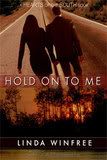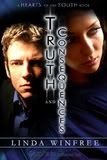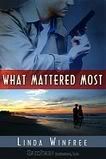Rules, Compromise & Comfort
*****
So...I'm revising.
Yes, still. And I'd appreciate it if you didn't rub it in.
Anyway, if you've been following our lovely board, you'll remember I posted a few weeks back about deep POV and staying in the character's head so completely during their scene that even the narration takes on that particular character's quirks.
I'm still struggling with that. It sounds easy, but it's really not. And not only is it hard to do...it doesn't always work!
I'm editing a scene in my hero's POV, and I'm trying my damnedest to be in his head, right? So I'm writing along...
"Cole's gaze followed Jenna, the slight sway to her slender hips and that darling little ass, as Jacob so aptly surmised, fixing his attention as solidly as a target at the range."
I stop.
Cole wouldn't think "gaze". I simply can't imagine any man short of a poet refering to how a person's eyes move as a "gaze". He'd think "eyes" or he'd think he was "staring at her" or "watching her".
But the "experts" in the romance genre don't like eyes rolling around, hence the overuse of the word 'gaze', and the terms 'watching, saw, heard, felt' pull a reader out of deep pov.
What's a girl to do????
Every time I find myself teetering over such a decision I'm brought back to something my mentor, Catherine Ryan Hyde, said in a class I took with her last year.
The class was focused on dialogue, and the assignment we were working on was differentiating each characters "voice". I read a section of dialogue from my ex-military hero. Here, he's speaking with the heroine's brother, also his own friend, about the heroine:
"Can you believe she actually accused me of spending time with her because I was paid to? Making love to her because she was a convenient distraction?"
Feedback from the group said that the phrase 'making love' didn’t fit his character; that guys don't talk to other guys about sex in terms of making love.
While Catherine agreed with both that generalization about male language and the fact that the term didn't fit my hero's character, she also said something I can still hear in my head today.
"While it may not be something a man would say, it might be something your audience would want to hear a man say."
Uh...wow.
She followed with, "Sometimes you have to take the expectations of your audience into account."
Uh...another wow
So, with those words floating in my head, I made an executive decision. I changed the word 'gaze' to 'eyes' when I'm in his POV. I usually have to reword the sentence to make it work, but the result is something that is truer to my character and a nicer fit for the story.
There are several considerations all writer's need to take into account:
- Integrity of the work--expressing your story in your unique voice (screw the "rules").
- Salability--stepping off your soapbox just far enough to pluck a check from your editor's hand.
- Reader expectations--finding a comfortable fit for your audience, after all those sales put that check into your editor's hand in the first place.
Ultimately, I think it's about finding your comfort level, knowing your story, touching your audience and one whole hell of a lot of compromise.
In the passage above, I compromised between "make love" (the woman's voice) and "screw" or something even harsher (the man's voice) with what I consider a more sensitive 'man's voice and used the phrase "slept with".
I was pleased with the result, still manly, but not rude:
"Can you believe she actually accused me of spending time with her because I was paid to? Of sleeping with her because she was a convenient distraction?"
Again, a minor example with a change in only a few words, but multiply this kind of modification throughout a 125k manuscript, and you've got a potentially powerful tool to create a truer, more authentic body of work.
Tell us how and when you compromise. What has made your work more authentic? What rules do you break or adhere to get closer to your audience?







2Comments:
This kind of brings back to me the things contest judges have said about my Native American paranormal historical. "The dialogue is stilted. You have to use contractions." I don't have to use contractions because they (the Native Americans) didn't and in some cases still don't use contractions when they speak. One judge even said, it sounded stereotypical. Sorry- I've been conversing with members of the tribe I am writing about and that is how they sound.
As for your choice of wording for the male character. I think it all comes down to the character. You have to go out of your comfort zone if you are getting into you characters POV. Especially if it is a villian or heinous person. But you have to stay true to the character or you lose the reader.
I'm a rule-breaker. I think a lot of the romance-writing rules came about because one or two people judging a contest said it "had" to be this way or that, and from there the ideas spiraled out of control to where they are now. Sure, felt, watched, heard might take you out of deep POV, but sometimes they're the strongest way to convey something. If you overuse them, I can see the concern, but if you're only using them once in a while, no big deal.
Post a Comment
<< Home